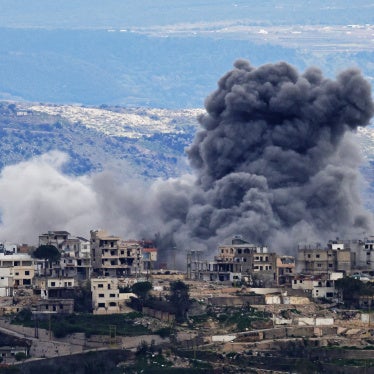The M23 admitted defeat today, bringing an apparent end to the Rwandan-backed armed group’s devastating attacks on civilians in the Democratic Republic of Congo. That’s a big step forward, but the work to account for the crimes committed by all sides in this complicated conflict has only begun.
But the key may have been mounting international pressure on Rwanda to stop supporting the M23. Aid from key donors had been cut, and last week, US Secretary of State John Kerry and UK Secretary William Hague even phoned Rwandan President Paul Kagame.
Congo has a lot of work going forward. It should bring M23’s leaders to justice, work to ensure there are no revenge attacks against those suspected of sympathizing with the M23, and address the threat posed by other abusive armed groups.
Chad's ex-dictator Hissène Habré fails in another attempt to escape justice. Habré’s one-party rule was marked by widespread atrocities, including killings and torture.Who’s spying on whom? The debate of surveillance and threats to privacy continues in the wake of the Snowden revelations and ensuing NSA scandal. In the latest move, Germany has called in the British ambassador over allegations of eavesdropping in Berlin.
In Tunisia, police arrested 34-year-old Walid Denguir. Shortly thereafter, he was dead. An investigation is called for.
In the UK, Guy Fawkes night commemorates the uncovering of a plan, knows as the “Gunpowder Plot,” conceived by Guy Fawkes and others to blow up the House of Lords on November 5, 1605. Guy Fawkes signatures – from before and after his torture – illustrate the horrors of torture.
From earlier today:




